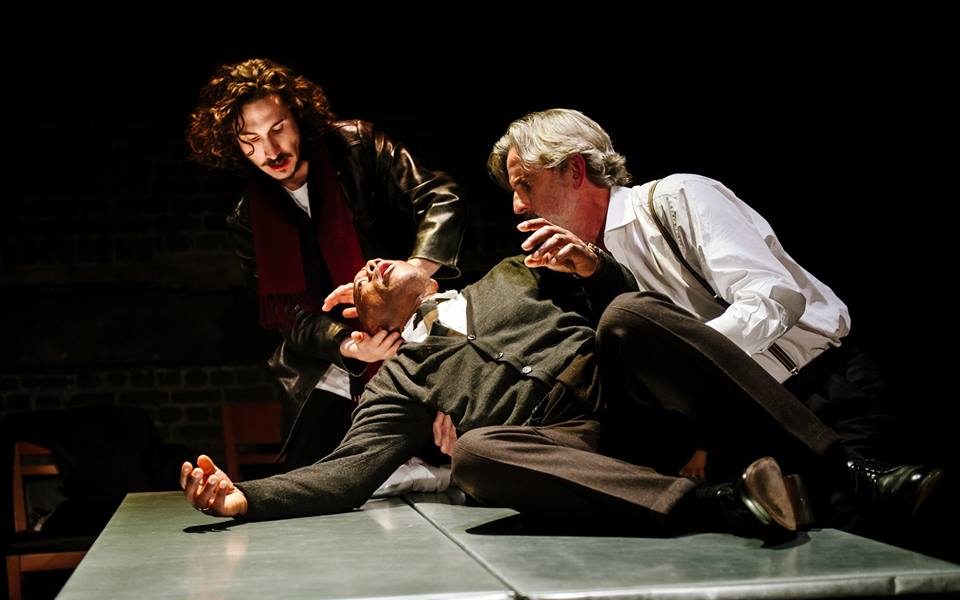The Plague at Arcola Theatre

A harrowing exploration of the human condition and how we behave in the time of a crisis, The Plague at Arcola Theatre is not to be missed. Based on Albert Camus’s celebrated La Peste, the stage adaptation directed by Neil Bartlett offers a gruelling and multifaceted story that puts love, loss and chaos under the microscope.
Written in 1947 in the wake of the Nazi’s march across Europe, Camus uses plague as a powerful metaphor for the fascist regime that, like an incurable and contagious sickness, ravaged a generation. Resonating with thousands, La Peste helped to make sense of an incredibly dark moment in history. “70 years after its publication, the novel has never felt more urgently contemporary,” says Bartlett. The context may have changed, but the central message remains the same: “What can we find in our hearts to get us through the impossible and the overwhelming?” How do we find a way to survive?
The Plague’s events pan out through a mix of vivid flashback and painful recollection. Grim formality is followed by feeling and the effect is in equal parts disconcerting and heartbreaking. As a result, Bartlett’s production comments on the power of retrospect and ideas of blame when we are forced to confront a painful past.
With an entirely minimalist approach to theatre, the piece consists of just five actors and a notably austere set design. Just as the performers are contorted into different roles, the set is fit for various purposes, manipulated into positions to find new meaning. Taped out stage markings on the floor are eerily reminiscent of crime scene chalk outlining key evidence and indicate the lingering scars left by unpleasant memories, jogged through retelling. The general tone of unease is amplified by a soundtrack of staccato piano keys. This, met with discordant moaning, wailing ambulances and the ever-present reminder of rats, creates a cumulative orchestra that underscores one city’s plunge into hell.
Though the content of the play is gruesome, the director notably chooses to avoid vivid representations of death. Bodies are conspicuous only in their absence, far more chilling than if there lay a person on the cold metal hospital slabs – a haunting reminder that this is all in the past, only ghosts remain. Sticking close to the original text, Bartlett effortlessly translates the symbolism on to the stage, allowing us to find new meanings in our own dark and dangerous times. Indeed, themes of frustration with the system, media rhetoric and moral obligation may hit a little close to home at times.
Making light work of a weighty allegorical tome, The Plague makes Camus accessible to new audiences and teaches us that, in the fight to survive at all costs, hope and unity are key to keeping one’s head above the putrid waters.
Katy Pryer
Photo: Alex Brenner
The Plague is at Arcola Theatre from 5th April until 6th May 2017, for further information or to book visit here.
























Facebook
Twitter
Instagram
YouTube
RSS